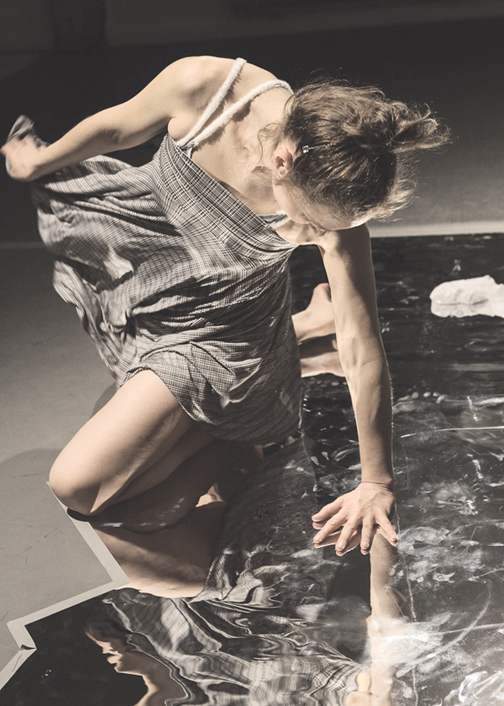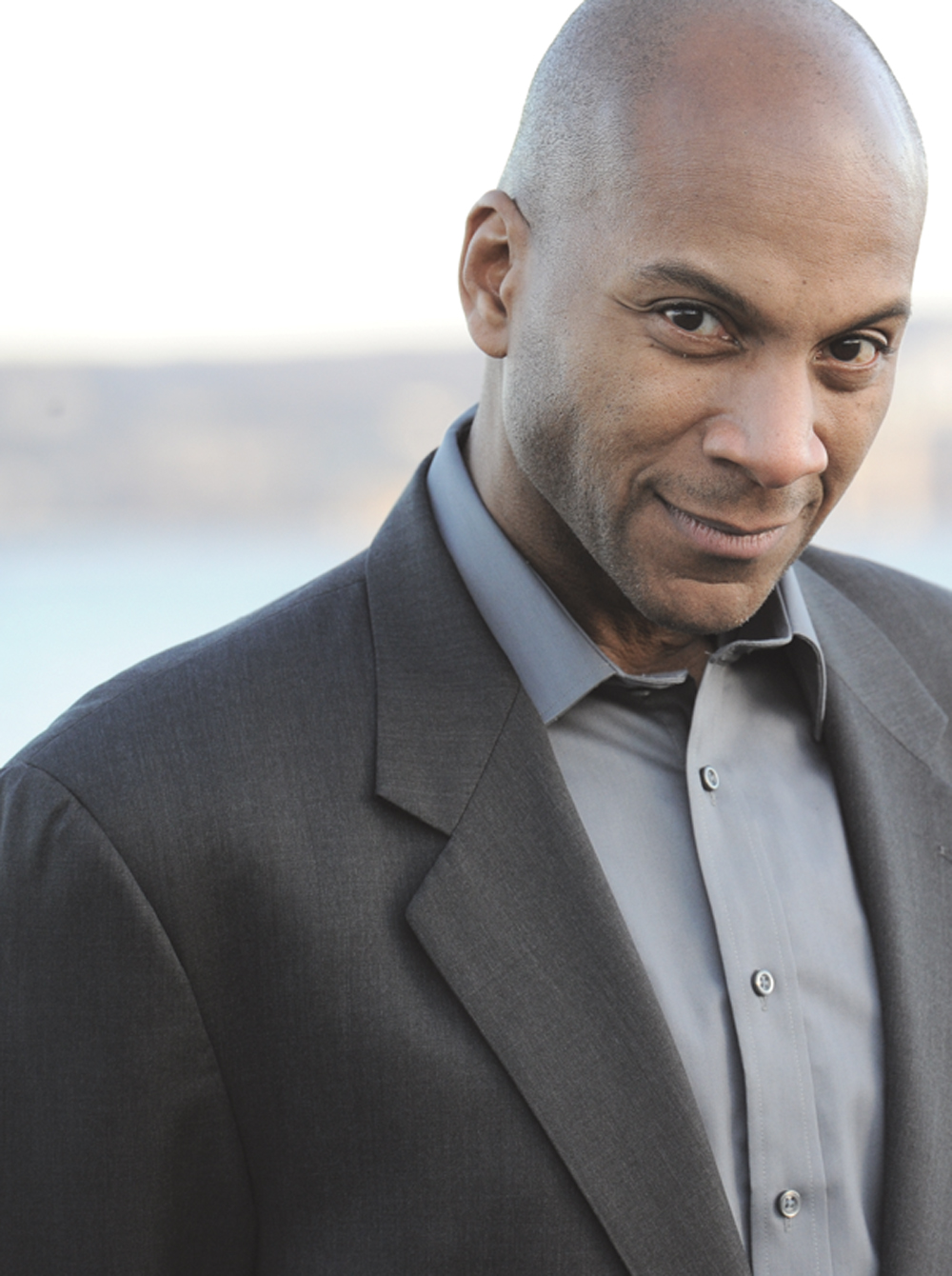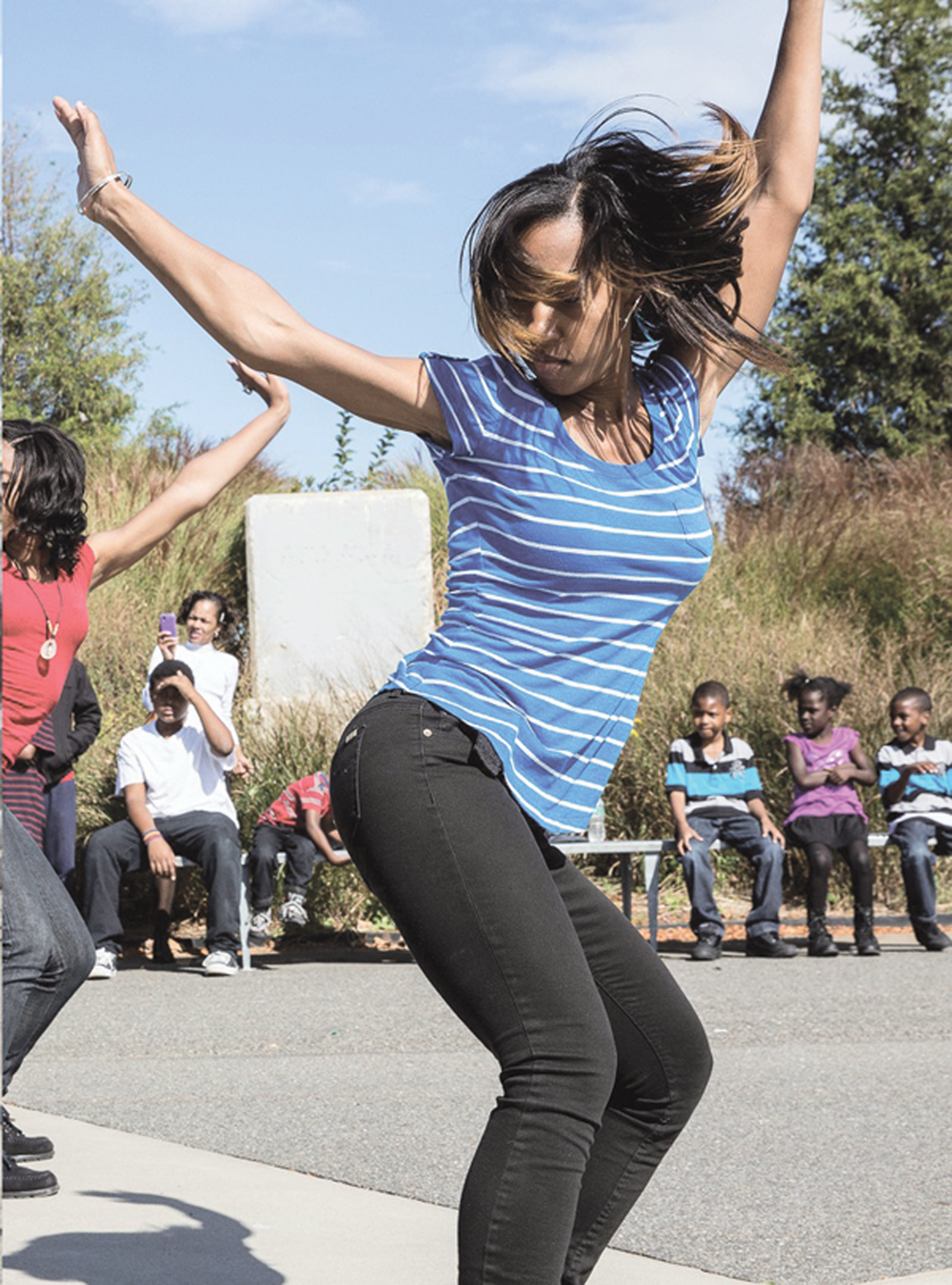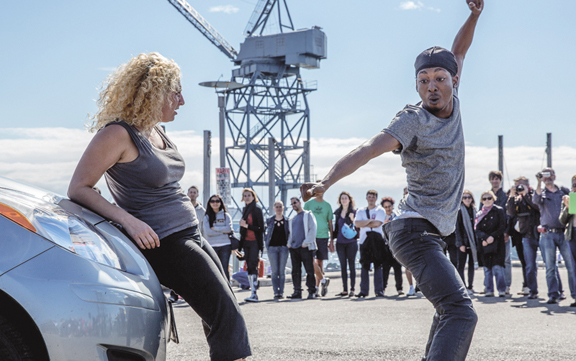Cora Dance is staging a showcase of varietal talent Red Hook has to offer on Saturday, January 25. The performances encompass a vast array of performance art, all from local talent.

Shannon Hummel created Red Hook LIVE to intersect people and expose the breadth of talent in Red Hook. “It’s a platform to know each other where normally we wouldn’t,” she says. “There is a lot of diverse talent in the neighborhood.”
This is the first foray into delving into that talent. Shannon hopes that in years to come she will be able to expand the project into multiple days of showcasing local talents and artists.
Youth choreography by CYC
At 2:15 pm, the Cora Youth Company (CYC) will open the show with repertory.
CYC started with 13 kids in 2012. Mateo was among them. In 2013, 70 kids were signed up.
CYC provides pre-professional company experience to young dancers taught by a series of youth choreographers. They have a wide range of teaching choreographers, and their work has been showcased at The Red Hook Waterfront Festival, the Cora Dance Studio, public events and schools.
Mateo Vidals, age 11, has been with Cora Dance for five years and has performed in 4 different works.
He is a member of CYC that will open the show, as well as Solomon Goodwin’s MVP closing act, “Blackout.”
Being in both performances provides a range of experiences for Mateo. He is studying ballet and hip hop among other genres. The difference, he says, is that the youth company says, “You have to get on task!” versus the easygoing nature of MVP that says, “We’re friends, but let’s get back to business.”
Performing is a little worrisome for Mateo before the shows. But, he added, “When you’re on the stage, you’re not nervous because you’re confident. But before, a little.”
Mateo encourages other guys to be dancers because there are so many genres almost anybody can find one they would like. “Even football players take ballet,” he explained. “Guys are scared because they don’t think it’s a cool thing. But if they’d try it, I think they’d like it.”
In MVP, Mateo is performing with six other dancers, two of them are guys.

Readings
At 4:15, three staged readings from Eric Fallen, Ryan F. Johnson and Shannon Hummel will be presented.
Eric Fallen is a playwright and screenwriter. His short film, “The Bravest, the Boldest” won top honors at both the 2012 Rhode Island Film Festival and the 2013 Nantucket Film Festival and is an Official Selection for Sundance’s 2014 Short Film Category.
Eric will be reading two original works, “The Perfect Storm” and “The Merry Go Round.”
Ryan F. Johnson is described as an “all around Renaissance Man.” He is an actor, spoken word poet and educator.
Ryan will be performing his one-man show written about his real-life adventures. Through acting, spoken word poetry and dance, Ryan’s show examines identify, race and love through a journey of heartache, anger, fear and self-growth.
Shannon will present the final reading, which will remain unannounced until the performance.
Shannon began dancing as a young girl in Virginia. Through her teachers, she says, she found “a portal toward an adult world I didn’t know existed.”
Shannon has brought national and international attention to her work at Cora Dance. This year, Cora was invited to perform in Scotland. They will also be making their debut at BAM this year.
She has choreographed Common Dances, a series of short dances that will be performed throughout the community, incorporating average things into the dances. In total, Common Dances is fifteen short pieces about relationships to others and the objects surrounding our lives.

“Bench,” part of the series, is a flirtatious exchange between a young couple striving to show their talents and boundaries. “Car,” another in the series, displays an intimate couple’s emotional progression in fast-forward while being performed inside and outside of a car on a random city block.
“Dance is a part of our lives. It’s who we are; it’s what we do,” Shannon says. Cora is like a second family to her and her son, Henry McFadden.
Henry is also taking lessons at Cora Dance for the first time this year. But he’s been hanging out around the studio since before he started school. Shannon explains that Henry is most comfortable around dancers. Henry adds, “I like to move around.”
Even though Henry is a new dancer, he has been a part of the scene all of his life. It has become second nature to him and has inspired him to learn to use his body in forms of expression. “Do I like it alright?!? I LOVE it! It’s really, really, really cool.”
Henry also has been on trips when Cora is touring. When asked what he likes best about the trips, he said, “I usually don’t do my homework.” He also enjoys going to the shows.
One Man Show Revival: Out of the Bag
Reg Flowers will be showcasing “Out of the Bag” at 6 pm.
“[Out of the Bag] was inspired by an article which appeared in May 1994’s New York Magazine. The play makes known the attempt to be a true story but runs with the few details known about the case weaving them into a pulp-flavored fiction of love and betrayal featuring a down-on-his-luck street hustler and a drag femme fatale in the works of the 1970s New York drag ball circuit,” Reg said.
Reg is founder and director of Falconworks Artist Group, a non-profit theater group that uses techniques to identify and create platforms for civic engagement and social change.
“Out of the Bag” was originally produced in 1998 starring Reg with sound design by Robert Cotnoir, a light show by Andrea Fiegel and directed by Michael Early.
His show at Red Hook LIVE will be a bare bones version of the original production including Reg, a stool and “a stack of pages that I hope will hold the audience for 45 minutes,” he described in an email to the Star-Revue.

Reg has been a theater professional and has been teaching artists since 1987. He is a produced playwright, producer, and film and stage actor.
He shared some of his thoughts on reviving “Out of the Bag” for this production. “Working on the play really brings back memories if the old New York of the late seventies around the time I first started coming into the city,” he said. “I also knew I wanted do something for an adult crowd and featured drag which is a big part of my Red Hook identity. Those who are Dropsy Dousman fans should get a big kick out of it.”
“Although I keep it pretty clean,” Reg advises, “it’s for mature audiences.”
Dance
At 7:30, Rebekah Windmiller takes a look back and ahead by performing work from years past and works just budding.
Rebekah has been a dancer and choreographer since 1984. In addition to the stage she has also performed in parks, piers and even her own bedroom. “Beholden,” her most recent solo was performed at Cora in 2013.
Hip Hop/Reggae showcase
Karen and Kandice Ross, along with Solomon Goodwin and MVP will close out the show with selections of Reggae and Hip Hop showcases.
Karen and Kandice, sisters, grew up in Red Hook and have been dancing together their whole lives. Their love for dance is reflected in the chemistry they share within their routines. They have performed in the largest Caribbean shows at CUNY and SUNY. They also perform with up and coming hip hop artists and numerous shows around the community.
Solomon grew up in the Red Hook Houses, where he learned his love of dance and developed his technique.
He has been dancing since he “popped out of the womb.” Movement has always been in his body, but he had to learn the techniques and skills. “Before I knew I was a dancer, I was a dancer,” he said.
He started free-styling when he was 7 years old. At age 9, he joined his first dance group called Final Destination. At age 11, he started his own dance group, teaching his two best friends to dance along with him.
They rehearsed in the hallways of the houses, outside, and the Red Hook Recreation the Miccio Centers.
The trio started holding performances wherever they could. They would perform on the trains sans music, so Solomon would sing the songs, notably Missy Elliot’s “Pass That Dutch.”
Solomon has also performed at the Apollo, the Lincoln Center, Coney Island festivals and block partied. He even worked on a short indie film in Connecticut. His first performance with the company was with Red Hook Fest at the Waterfront Festival in 2003.
Solomon was also a part of Red Hook Initiative as the first group of boys invited to join. During his time there, he tutored kids with their homework, was a radio intern and dance specialist, and taught Taekwondo. Sheryl Nash-Chisholm first introduced Solomon to Shannon at Cora Dance.
Meanwhile, Shannon had heard much about Solomon. Finally, Jill Eisenhard, founder and executive director of RHI, gave Solomon’s phone number to Shannon.
Expression through Teaching
While dancing is still Solomon’s passion, teaching dance is second nature to him. His goal is “to be able to help somebody and make them comfortable. A lot of people feel like they can’t dance,” he said. “Everybody has movement in their bodies,” Shannon added. Dance is the way to help people express that movement. “Some kids, their intelligence comes out in movement.”
As part of the Cora Dance staff, Solomon gets to work with kids that are the age he was when he started dancing. “Kids have the movement in their bodies. [They] just have it. Second nature. It’s like English,” he explained. “They can speak dance before they can speak sentences.”
Solomon also uses his past experience as a guide for his lessons. “Kids are important to work with because they have a dynamic they don’t even know about,” he said. “Kids set the bar. That’s where we need to invest our time. Build the future. The younger the kid, the greater the impact. I want to have the greatest impact.”

In the upcoming performance, “Blackout” by MVP, he gives his students leeway to express their own personalities. “I want them to feel like it’s theirs too. It adds their personality and character into the mix. Solomon choreographed about 90% of the dance, but he has allowed each of his seven dancers a few seconds of their own creativity. They will each have “two eight counts” – sixteen beats of music to either freestyle or choreograph their own work. He told them to “put movement together that you love,” but added, “I don’t want to see it until the performance.”
Solomon’s performances often center around the dueling of dancers. He describes it as a battle and a family. “We battle each other and we go through Hell. But we love each other. That’s how most families are.”
Breaking the Stereotype; Being a male Dancer
“Anybody that is not you and has an opinion about you that is not supportive needs some assistance,” Solomon says. “Don’t let anyone else squander your talent. I know who I am and love who I am.”
When he was a young boy, Solomon was told he couldn’t – or shouldn’t – be a dancer because he was a boy. But Solomon says, “I knew I was going to keep dancing, no matter what anybody else said.”
“It was always the people who wanted to break me down that didn’t have anything going on in their lives.” Solomon said it was easy to be motivated by people saying he couldn’t. “When you are doing what you’re doing, and you are succeeding, people will want to see you fall. But if you’re comfortable with yourself and you know who you are, nobody can argue with that.”
What made things difficult was that he “didn’t have that support my dancers have. When you’re shut down, that’s when you break.”
Solomon shared a story about choosing between a football game and a dance competition. He chose the football game because he wanted “to feel like a boy and be with the boys.” His football team lost, but his dance team won, and he wasn’t there to share victory with them. From that point on, he never looked back. “When I was a kid, I could always fall back on dance,” he said.
“No matter how old, how young, do what makes you happy. Nothing else matters.”








